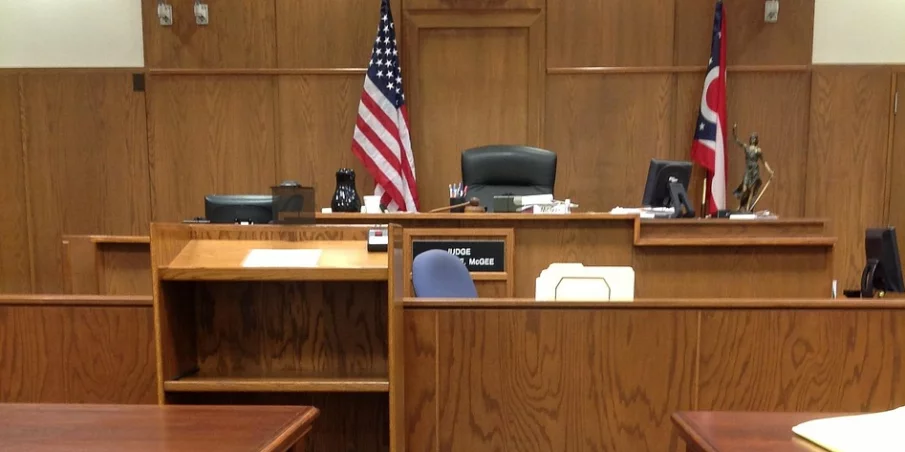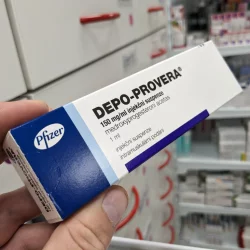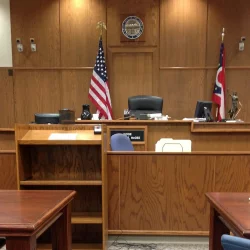What to Expect for Your Personal Injury Settlement After Deposition

Going through a personal injury case can feel like navigating a complex maze, especially when you reach the deposition stage. Many claimants wonder what happens to their settlement prospects after they've given their testimony under oath. This critical juncture often marks a turning point in negotiations and can significantly impact the compensation you ultimately receive.
Personal injury settlements following depositions typically follow predictable patterns, yet each case has unique elements that affect timing and outcomes. Understanding this process empowers you to make informed decisions and set realistic expectations as your case progresses toward resolution.
The Role of Depositions in Personal Injury Cases
A deposition represents a pivotal moment in personal injury litigation. During this formal proceeding, you'll answer questions under oath from the defense attorney while a court reporter records everything. Your attorney will be present to object to inappropriate questions and provide guidance when needed.
Purpose and Importance of Depositions
Depositions serve multiple functions that directly impact settlement negotiations:
Depositions establish your version of events in an official record, locking in your testimony before trial. Defense attorneys use this opportunity to assess how you would perform as a witness if the case proceeds to court. Your credibility, consistency, and overall presentation during deposition often shape the defense's settlement strategy.
Insurance adjusters and defense lawyers evaluate deposition transcripts to identify strengths and weaknesses in your case. They pay particular attention to inconsistencies or admissions that might undermine your claim. Your testimony about the accident, injuries, treatment, and how the injuries have affected your life provides concrete evidence that helps both sides value your claim more accurately.
Common Deposition Topics in Personal Injury Cases
During your deposition, expect questions covering several key areas:
The accident itself will be examined in detail—what happened, the sequence of events, visibility conditions, what you saw and heard, and your actions before, during, and after the incident. Your injuries and medical treatment history will be thoroughly explored, including pre-existing conditions, the full extent of injuries from the accident, treatment protocols, medications, therapy sessions, and your compliance with medical advice.
The defense will inquire about how your injuries have affected your daily life, including work limitations, household activities, hobbies, and personal relationships. They may also ask about your employment history, current position, income, and any work missed due to injuries.

Timeline for Settlement Negotiations After Deposition
The period following your deposition often brings renewed settlement discussions, though timing varies based on case specifics.
Immediate Post-Deposition Period
In the days and weeks after your deposition, your attorney and the defense team will analyze your testimony and reassess the case's strengths and weaknesses. This evaluation period typically lasts several weeks as both sides consider how your testimony affects the claim's value.
During this time, your attorney might contact you to discuss how the deposition went and possibly provide insights into how it might influence settlement negotiations. While some cases see immediate settlement offers following depositions, particularly if you performed well, most require additional time for careful analysis.
Factors Affecting Settlement Timing After Deposition
Several variables influence how quickly settlement talks progress after depositions:
The complexity of your injuries and treatment needs plays a major role—cases involving ongoing medical care typically take longer to settle than those with fully resolved injuries. The number of parties involved can extend timelines, as multiple defendants or insurance companies may need to coordinate responses and contributions.
The clarity of liability affects timing significantly. When fault is obvious, settlements tend to progress faster than in cases with disputed responsibility. The insurance company's internal processes and workload may introduce delays beyond anyone's control, as adjusters often handle numerous claims simultaneously.
Your attorney's strategy also impacts timing—some lawyers prefer to wait until medical treatment concludes before serious negotiations, while others begin discussions earlier to gauge the defense's position.
How Deposition Performance Influences Settlement Value
Your conduct and testimony during deposition directly affect your settlement prospects.
Positive Deposition Outcomes That Enhance Settlement Value
When you present as an honest, consistent witness whose testimony aligns with medical records and other evidence, you strengthen your negotiating position. Depositions that clearly establish the defendant's negligence and your resulting damages typically lead to more favorable settlement offers.
Detailed, specific descriptions of how injuries have impacted your quality of life can substantially increase claim value. Personal stories about missed family events, inability to perform routine tasks, or emotional struggles often resonate more powerfully than clinical descriptions.
Maintaining composure under pressure demonstrates to defense attorneys that you would make a sympathetic, credible witness at trial—something they factor into settlement calculations.
Deposition Mistakes That Can Harm Settlement Value
Certain deposition behaviors can undermine your position and reduce potential settlements:
Inconsistencies between your testimony and previous statements or medical records raise credibility concerns that defense attorneys exploit to justify lower offers. Exaggerating symptoms or limitations can backfire dramatically, especially if surveillance evidence contradicts your claims.
Admitting fault or acknowledging pre-existing conditions without proper context may provide the defense with arguments for reduced liability. Displaying anger, hostility, or evasiveness during questioning often creates an unfavorable impression that diminishes your case value.
Strategic Considerations After Your Deposition
The post-deposition phase requires thoughtful strategy from both you and your attorney.
Evaluating Settlement Offers
After depositions, you may receive settlement offers that require careful evaluation. Your attorney will help you assess whether an offer adequately compensates for your damages, considering medical expenses, lost income, future treatment needs, and non-economic damages like pain and suffering.
This evaluation often involves comparing the offer against potential trial outcomes, factoring in litigation costs, time investment, and uncertainty. Your attorney might recommend accepting a reasonable offer, rejecting clearly inadequate offers, or making counteroffers to advance negotiations.
When Settlement Discussions Stall After Deposition
If meaningful settlement offers don't materialize following your deposition, several options remain available:
Mediation provides a structured negotiation environment with a neutral third party who facilitates compromise. This process often succeeds when direct negotiations stall. Arbitration offers a more formal alternative where a designated arbitrator reviews evidence and testimony before rendering a binding or non-binding decision.
If alternative dispute resolution methods fail, trial preparation becomes necessary. This might involve additional depositions of expert witnesses, pretrial motions, and evidence gathering. Many cases settle during this preparation phase as trial dates approach and pressure mounts on both sides.
Types of Settlements After Deposition
Personal injury settlements following depositions typically fall into several categories.
Lump Sum Settlements
Most personal injury cases resolve with single lump-sum payments that provide immediate, complete compensation. These settlements offer certainty and closure, allowing you to move forward without ongoing legal involvement. They typically require signing a release that prevents future claims related to the same incident.
Lump-sum settlements eliminate the risk of defendant bankruptcy or insurance insolvency that might complicate future payments. However, careful financial planning becomes essential, especially for settlements intended to cover long-term medical needs.
Structured Settlements
For cases involving significant damages or long-term injuries, structured settlements distribute compensation through scheduled payments over time. This approach provides financial security through regular income streams tailored to anticipated future needs.
Structured settlements often offer tax advantages for portions covering future medical expenses or lost income. They're particularly beneficial for minors or individuals with catastrophic injuries requiring lifetime care. However, they provide less flexibility than lump-sum payments and may not account for unexpected future developments.
Legal Considerations After Deposition
Several legal factors influence post-deposition settlement processes.
Settlement Paperwork and Release Forms
When settlements occur after depositions, comprehensive documentation formalizes the agreement. Settlement agreements specify exact payment amounts, release terms, confidentiality provisions, and tax considerations. Release forms typically require waiving all future claims against the defendant and related parties regarding the incident.
Before signing, your attorney should review all settlement documents to ensure they accurately reflect the agreed terms and protect your interests. Some settlement agreements contain confidentiality clauses that restrict discussing the case or settlement amount with others.
Tax Implications of Personal Injury Settlements
The tax treatment of personal injury settlements varies based on the specific damages compensated:
Compensation for physical injuries or sickness generally remains tax-exempt under federal law. However, portions allocated to punitive damages, interest on awards, or lost wages may be taxable. Settlements for emotional distress without physical injury typically face taxation, though related medical expenses may qualify for exemptions.
Your attorney should coordinate with tax professionals to structure settlements optimally and ensure proper reporting. Larger settlements especially benefit from professional tax guidance to minimize liabilities while maintaining compliance.
Preparing for Life After Settlement
Receiving your settlement requires thoughtful planning for both immediate and long-term needs.
Financial Planning for Settlement Funds
Prudent financial management ensures your settlement serves its intended purpose of making you whole after injury:
Consider establishing separate accounts for different settlement purposes—immediate medical bills, ongoing treatment, living expenses during recovery, and long-term security. For substantial settlements, consulting financial advisors helps create investment strategies aligned with your recovery timeline and future needs.
If your settlement replaces lost earning capacity, developing a budget that stretches funds appropriately becomes essential. Some recipients establish trusts to protect settlement funds from creditors or ensure disciplined use over time.
Addressing Ongoing Medical Needs
Many injury victims face continued medical challenges even after settlement:
Your settlement should account for future treatment needs based on medical projections. Creating a healthcare plan ensures continued access to necessary specialists, therapies, and medications. For chronic conditions, research support groups and pain management strategies that complement medical treatment.
Settling vs. Going to Trial After Deposition
Deciding whether to settle or proceed to trial represents one of the most significant choices in personal injury cases.
Benefits of Settling After Deposition
Settlement offers numerous advantages over trial:
Settlements provide certainty by guaranteeing specific compensation amounts without the unpredictability of jury verdicts. They typically conclude cases faster than trials, allowing quicker access to needed funds. The privacy of settlements keeps your personal information and injury details confidential, unlike public trial proceedings.
Settlements eliminate appeal risks that might delay compensation for years after favorable verdicts. They also significantly reduce legal costs by avoiding trial preparation, expert witness fees, and extended attorney involvement.
When Trial Might Be Preferable
Despite settlement benefits, some circumstances warrant proceeding to trial:
When insurance companies refuse reasonable settlement offers despite strong evidence supporting your claim, trials may become necessary. Cases involving egregious negligence sometimes merit pursuing punitive damages available only through court verdicts. Complex liability scenarios with multiple defendants occasionally resolve more effectively through judicial proceedings.
Conclusion
The period following your personal injury deposition often represents a critical juncture that shapes settlement outcomes. Your preparation, performance, and post-deposition strategy significantly influence both settlement amounts and timelines. Working closely with your attorney to capitalize on deposition strengths while mitigating any weaknesses positions you for optimal results.
Understanding the settlement process after deposition helps set realistic expectations and make informed decisions as your case progresses. While each personal injury claim follows its unique path, recognizing common patterns and strategic considerations empowers you to navigate this challenging phase with confidence and clarity.
More to Read:
Previous Posts:
Next Posts:





